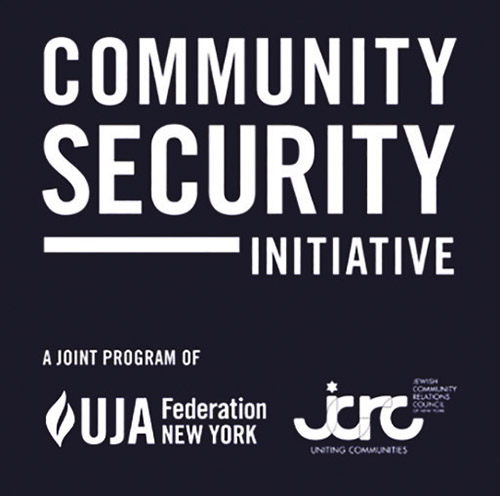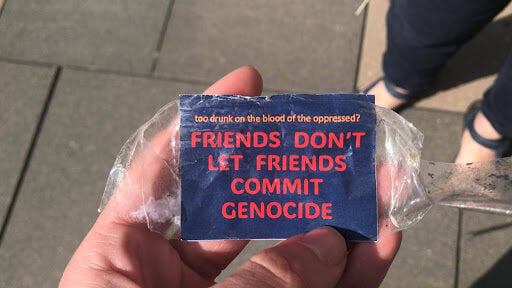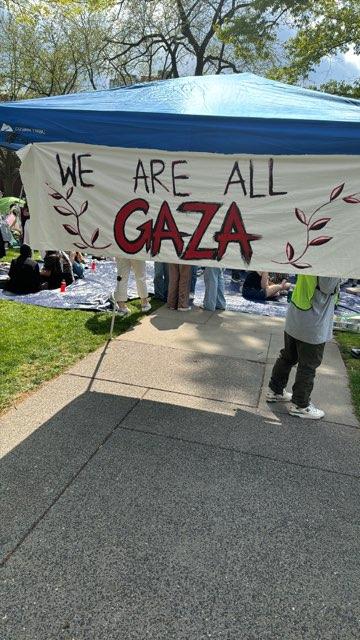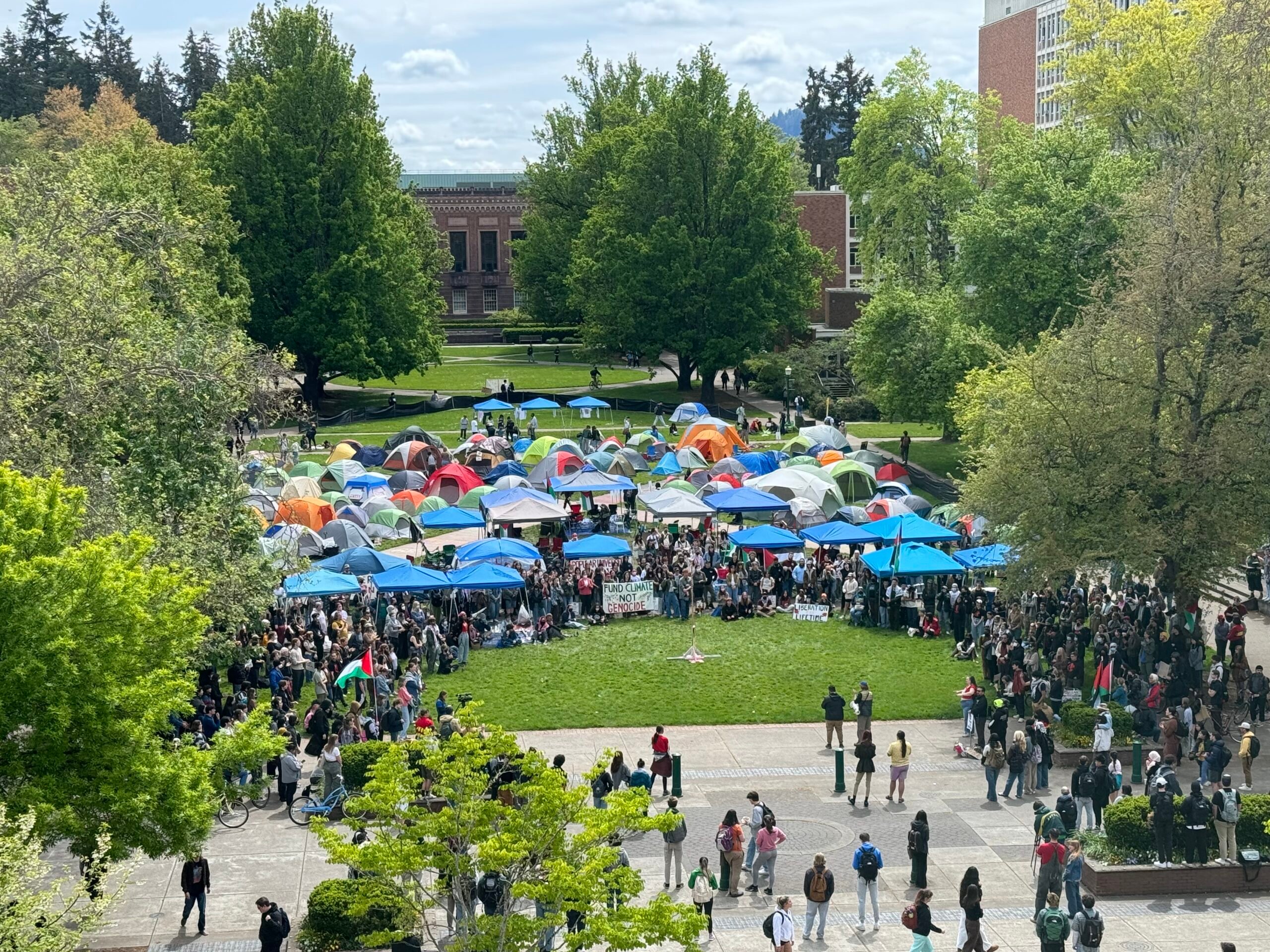
As ongoing threats against the Jewish community continue to rise, a strong partnership between a cadre of volunteers, Jewish security initiatives and local, state and federal law enforcement has thwarted attempts to harm local Jewish communities.
That joint cooperation most recently worked effectively when two men were arrested on November 18 by MTA police as they exited Penn Station in Manhattan, the same day an online threat to “shoot up” a synagogue was flagged by the Community Security Initiative (CSI).
CSI, a joint program of UJA-Federation and Jewish Community Relations Council of New York (JCRC), distributes security alerts, timely security and cyber security information and security grant announcements. It quickly resulted in a collaborative effort with the National Community Security Service (CSS), a nonprofit safeguarding the Jewish community by offering security training, guidance and volunteers; Anti-Defamation League (ADL), whose Center on Extremism tracks extremism trends; the Secure Community Network, the official safety and security network of North America’s Jewish community; the NYPD and FBI.
That threat was detected at about 10 a.m., and just before midnight an arrest was made of the man who posted the threats and an accomplice. Taken into custody were Matthew Mahrer, 22, and Christopher Brown, 21, who were arraigned on 11 charges, including criminal possession of a weapon and criminal possession of a firearm. Brown was also charged with making a criminal threat. They had in their possession a swastika armband, large hunting knife, an illegal Glock firearm and a 30-round magazine of ammunition.
Mahrer is Jewish and the grandson of a 93-year-old Holocaust survivor, whom he helps care for, but is reportedly autistic and bipolar, and has ADHD.
A phone interview with JCRC Chief Operating Officer Noam Gilboord and a November 22 online seminar by those involved in the joint effort provided a timeline of the events and how seamlessly a web of cooperation is employed to foil threats to the Jewish community.
“This is a critical moment in our experience as American Jews,” said John Shapiro, co-chair of the community relations and safety committee of UJA-Federation, about the threats coming from both the left and right. “The only anecdote is to stand together.”
ADL Vice President of Analysis and Law Enforcement Greg Ehrie, who formerly ran the FBI’s New Jersey office, said it has been his experience that after such incidents someone usually says, “I knew, I thought, but didn’t want to raise alarm bells.”
“Tell somebody,” said Ehrie. “It sounds so simple but sometimes it gets overlooked.”
Ehrie said the incident two weeks ago in which the FBI said it detected a credible threat against New Jersey synagogues, which saw heavily armed police posted outside some shuls and caused others to cancel activities, was an example of law enforcement “at its best,” as the FBI worked in concert with state and local law enforcement. But any information received could be that one piece that various agencies working collaboratively need to stop incidents, he emphasized.
CSI Executive Director Mitchell Silber, the former head of intelligence analysis for the NYPD, said the “very unusual” comments by FBI Director Christopher Wray that the agency views protecting the Jewish community as a national priority shows how seriously an agency tasked with monitoring everything from Chinese espionage to Russian interference in elections views the situation.
The FBI is aware that although Jews make up only 2.4% of the population, they are the target of 63% of religion-based hate crimes, said Silber.
“I think there’s a personal element to this,” said Silber of Wray. “Since he’s been in office he’s seen Tree of Life. He’s seen Poway. He’s seen Monsey. He’s seen Colleyville, and in the last two weeks he’s seen New Jersey and New York. It’s something that is inescapable.”
Antisemitism is coming at the community from all sides, according to law enforcement authorities and Jewish organizations. Silber said those include the progressive anti-Zionists, the neo-Nazi Goyim Defense League, the right-wing QAnon and the Black Hebrew Israelites.
“That’s four different directions coming at us at once,” said Silber. “I think what’s different is the volume. I think we’ve had it from different directions at different times in the United States, but not simultaneously. It feels a little bit like the perfect storm right now, and we feel the dashboard is sort of blinking red.”
Moreover, Silber pointed out that antisemitism tends to happen when society is under a lot of stress, and a confluence of issues have pushed that societal angst, including political and economic issues, and mental health problems resulting from the COVID pandemic. “Add on top of that some dystopian killer virus that you throw into the mix and honestly, people just have a tough time wrapping their minds around this world. It sounds more like a Stephen King novel.”
Gilboord likened Jews to the canaries in the coal mine because, like the birds who warned miners of deadly gases, Jews are society’s warning signal of instability. “Jews are always the first, but never the last when instability is around us,” he cautioned.
Bolstering Silber’s assessment, he observed that the perpetrator in the New Jersey threat was an 18-year-old radicalized by ISIS. In the New York, Brown was a neo-Nazi.
Gilboord, a Teaneck resident, said during the New Jersey incident the local Modern Orthodox community had been debating whether it was safe to send their children to school or shul. In his own synagogue, Congregation Beth Sholom, parents were instructed not to let their children hang out in the lobby or roam around until the threat was contained.
The way to help counter such threats is to harden security as well as develop lasting relationships and communication with non-Jewish communities, a core function of the JCRC, because “it’s really hard to hate someone if you know them and trust them,” said Gilboord.
The New York threat began with an alert about a threatening tweet, said CSI team member Rebecca Federman, and within the hour there was collaboration between agencies. By early afternoon the NYPD, with whom it has had a historically close relationship, requested an investigation with Twitter.
Silber said he personally called its director of intelligence, who picked up the call despite being in Australia, stressing this threat stood out. However, with the start of Shabbat quickly approaching the community turned to CSS to get word out to the Hasidic and Orthodox communities. Its CFO, Evan Bernstein, said it works in partnership with Shomrim and other trained volunteer groups in such situations. However, all organizations needed to get the right language down and be on the same page so as not to provoke even more anxiety.
By 9:30 p.m., NYPD had put out a bulletin across the city after identifying Brown as the poster and at 11:30 p.m., word was received that the arrests had been made.
“There is danger out there, but we mitigated the danger by banding together,” said Ehrie. “You should be optimistic that collectively people are watching out for us and other communities against these threats. No one is saying, ‘Shut down houses of worship,’ because we’re not there yet.”
Bernstein urged the community to stand strong in the face of rising antisemitism. “We have to continue to practice our Judaism. The antisemites don’t want us to be Jewish. They don’t want us to practice. They want us to hide our Judaism, and we can’t do that. If we look back 50 years ago, the relationship we had with law enforcement is not even close to what we have now. We cannot let these people win.”












